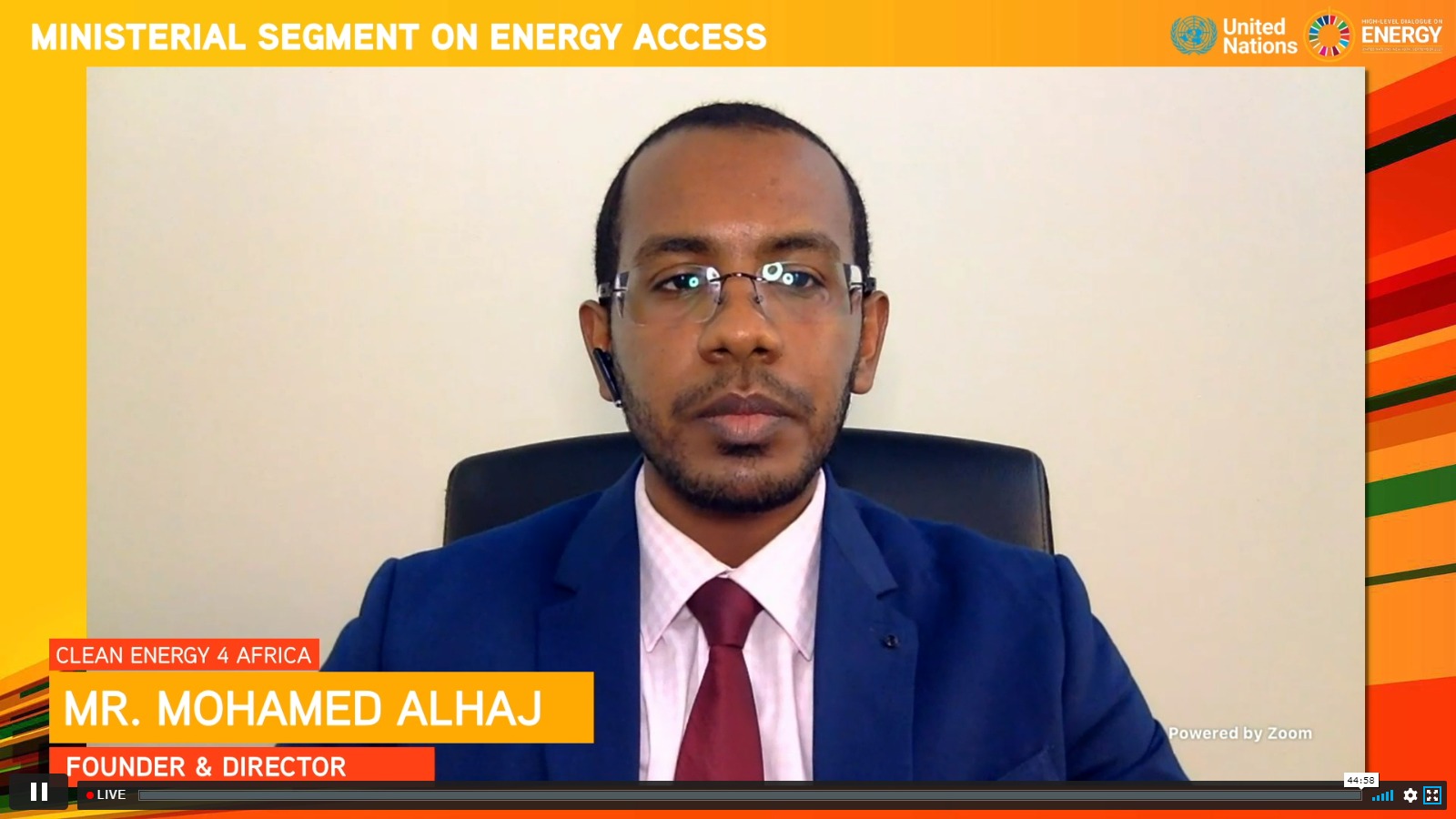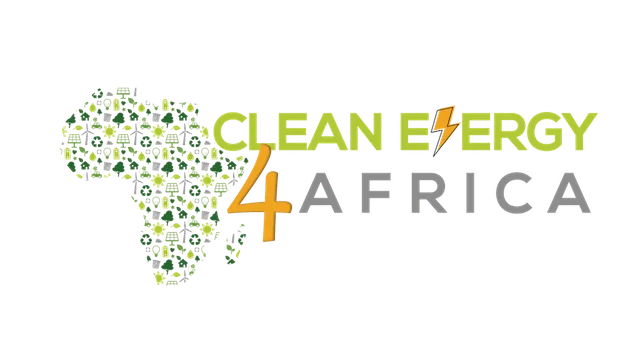
Speech by Dr. Mohamed Alhaj, Founder & Director of Clean Energy 4 Africa, delivered at the UN High-level dialogue on energy Ministerial Thematic Forum on Energy Access, June 2021.
Energy injustice is the most critical issue facing our world today. It is unacceptable that in 2021, there are still over 700 million people who lack access to electricity and over 2 billion people without access to clean methods of cooking. It is even more alarming that around 50% of these people live in fragile and conflict-affected areas.
In Sudan, the country where I come from, I have witnessed firsthand how poor access to electricity has impacted almost everyone. The village where my family comes from in the state of South Kordofan, until today, suffers from frequent power outages that extend for hours every day. Power outages have also affected internet connectivity, leaving the majority of the rural population isolated from the world, and unable to enjoy basic digital services like banking, social media, and e-learning.
Energy injustice has prevailed for a long time, especially in Africa, to the extent that we seem to have gotten accustomed to it. This should not be the norm!
Energy access is essential for peace-keeping efforts in war-torn regions, reducing crime and supporting stability, creating jobs, supporting life-saving vaccine distribution efforts, and enhancing resilience to events such as the Covid-19 pandemic.
The Covid-19 pandemic has revealed how poor or no energy access leads to more severe impacts of global crises on developing countries. In fact, the Tracking SDG7 2021 report highlighted that the improvements in energy access in Africa in the past decade is projected to be reverse, due to the pandemic. It is projected that nearly 30 million people, mostly in rural areas, may be pushed back to energy poverty due to the pandemic.
This situation must change.
Distinguished attendees and your excellencies, the youth count immensely on your role as policy-makers in this decade of action!
I would like to highlight three areas of action where you as policy-makers can accelerate global efforts to achieve universal energy access by 2030:
a) Youth empowerment in policy-making: Young people are key agents for social change and sustainable development. We need to encourage more youth participation at the parliamentary level, at negotiations on international climate issues, and at public consultations on national energy strategies. Give the youth the opportunity and let their voices be heard!
b) A strong political will that is supported by a commitment to action is a must if we want to achieve universal energy access by 2030. We need robust regulatory frameworks that promote innovative business models such as pay-as-you-go, and policies that overcome cost barriers. To scale access to energy in this decade, national energy access plans should consider both on-grid and off-grid technologies and should implement the necessary fiscal and financial incentives. In my home country, Sudan, the Government has recently passed the PPP law, which will pave the way for effective partnerships and support the development of energy access projects. This is a great start, but more work is still needed.
c) We need to mobilize more funds and adopt innovative financing mechanisms to increase the deployment of modern and clean energy technologies. The IEA & IRENA estimate that investments in renewables need to grow to $550-850 billion a year by 2030, in the power sector alone. I am happy to share here that recently, in Sudan, the first green investment fund for renewable energy projects, worth $11 million, was launched by one of the largest local banks. This is a big step which I am sure will accelerate Sudan’s energy transition efforts.
I would like to conclude this remark by the African proverb that says “if you want to go fast, go alone. If you want to go far, go together”.
Let’s all work together to make universal energy access by 2030 a reality.

